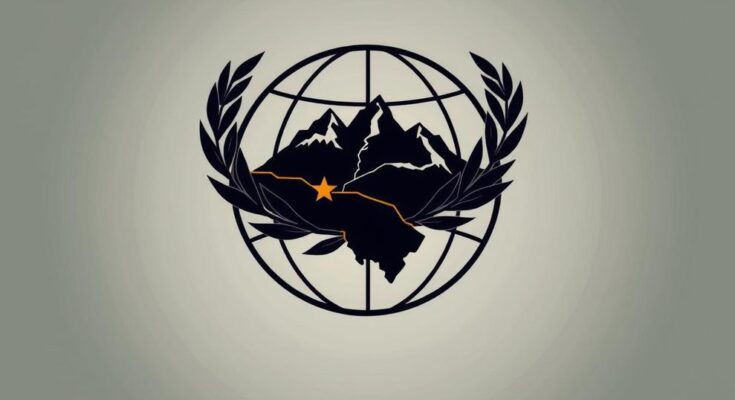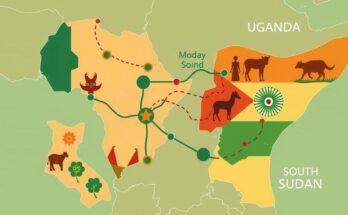President Felix Tshisekedi terminated his Davos visit due to escalating violence in eastern DRC as M23 rebels advance, resulting in over 400,000 displaced individuals. The conflict threatens the provincial capital of Goma, prompting urgent government security meetings. As the international community calls for adherence to sovereignty, the chance of a broader regional conflict grows.
President Felix Tshisekedi of the Democratic Republic of Congo (DRC) has truncated his participation at the World Economic Forum in Davos due to escalating conflict in his nation. The violence in the eastern region has exacerbated since the beginning of the year, with the M23 rebel group taking control of significant areas, prompting fears over the security of the provincial capital, Goma.
According to United Nations reports, over 400,000 individuals have been displaced amid the M23’s territorial advances. Tshisekedi returned to DRC to convene urgent security meetings in light of recent territorial gains by M23, which now controls towns such as Masisi and Minova. The potential fall of Goma, a city crucial to the DRC, presents a grave concern for the government, recalling past tensions from 2012.
The M23’s recent seizure of the town of Sake, located merely 20 kilometers from Goma, has raised alarms for both local residents and authorities. Despite the Congolese military’s assertion that it repelled the M23’s attack on Sake, many residents have fled their homes, carrying their belongings in desperate attempts to find safety.
Since 2021, the M23 has dominated vast areas of eastern DRC, leading to substantial displacements of civilians. Although there was a temporary lull in hostilities last summer, fighting reignited in the latter part of 2022, intensifying the dire humanitarian situation. The DRC government, along with the UN, continues to allege Rwandan support for these rebels, a claim Rwanda has yet to confirm or deny.
On the international stage, UN Secretary-General Antonio Guterres has cautioned that the ongoing conflict risks instigating a larger regional war. He has urged all parties involved to adhere to the sovereignty of the DRC and cease all forms of assistance to armed groups, emphasizing the importance of stabilizing the situation in the region.
The conflict in the DRC has deep historical roots, often exacerbated by external influences and internal strife. The M23 rebel group, which emerged from previous military factions, has been accused of receiving backing from Rwanda, complicating the security landscape. The eastern provinces of DRC are particularly unstable, rich in natural resources yet plagued by violence and displacement. The situation has drawn international attention as humanitarian crises unfold, prompting calls for negotiations and stabilization efforts.
In summary, President Tshisekedi’s abrupt return underscores the gravity of the conflict in the DRC, particularly as the M23 rebels advance. The displacement of over 400,000 civilians highlights the urgent humanitarian needs arising from the conflict. With international actors urging respect for Congolese sovereignty, the situation necessitates immediate attention to prevent further escalation and to aid affected populations.
Original Source: www.bbc.com




